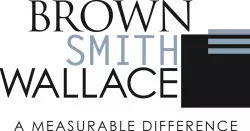The new lease accounting standard may be a bigger undertaking than some companies expect. Straightforward leases of real estate and vehicles won't present too much of a challenge, but complex judgment calls may be required for some third-party service contracts. Here is what you need to know about the lease standard that was issued by the Financial Accounting Standards Board (FASB) in February 2016 before it goes live in 2019 for public companies and 2020 for private ones.
Years in the Making
The FASB's lease standard is the culmination of years of debate about how to make balance sheets more representative of companies' financial condition. The existing lease accounting rules in U.S. Generally Accepted Accounting Principles (GAAP) require companies to record lease obligations on their balance sheets only when the arrangements are akin to financing transactions, such as rent-to-own contracts for buildings or vehicles.
In practice, few arrangements get recorded under the existing guidance because of what critics call "bright lines" in the rules that let businesses structure deals to look like simple rentals. If an obligation isn't recorded on the balance sheet, it makes a business look like it's less leveraged than it really is.
Investors and analysts, however, have long considered lease expenses an essential component to assessing a business's financial health. Most use data in footnote disclosures to determine what a balance sheet would look like if the company were forced to own up to its lease liabilities.
The FASB's final lease standard is less comprehensive than earlier drafts. But implementing the changes still will be a significant undertaking for many businesses.
Changes Underway
Accounting Standards Update (ASU) No. 2016-02, Leases (Topic 842), requires companies to report on their balance sheets their leased office space, storefronts, vehicles and equipment as assets and the rent they pay for them as liabilities. The standard is expected to make company balance sheets balloon. Although the changes don't go into effect for a few more years, companies that issue comparative financial statements will need to change their reporting processes and recordkeeping long before the implementation date.
Implementation starts by gathering all contracts and assessing who's in control. Most businesses will know right away that they have to put their rented real estate, factory equipment and vehicle fleets on the balance sheet, but some arrangements can get more complex. For example, an oil company hiring a contractor to drill in the Gulf of Mexico and operate an oil rig could fall under the lease standard, depending on which party controls the rig.
Some U.S. businesses also must assess whether the rented equipment used by third-party overseas manufacturers will have to be accounted for under the updated guidance. The exercise of deciding how to account for the rented equipment for the third-party manufacturers will require significant research and data collection. In fact, just documenting that the standard doesn't have an impact could be time-consuming for management.
In some cases, deciding whether to report leases on the balance sheet could require complex judgment calls. Handling lease agreements in a centralized manner may help larger companies simplify the decision-making process and lead to greater consistency across reporting units.
Helping Hand
As the effective date for the updated guidance approaches, companies should realize that implementing the FASB's new lease accounting standard will require an effort that's comparable to other major accounting changes. To make the changes, management must cull data not just from rental agreements for storefronts and vehicles, but also from service arrangements and third-party outsourcing contracts.
For help understanding how the new standard will affect your business, contact Dan Ward, Principal, Audit Services, at 314.983.1237 or dward@bswllc.com.
The content of this article is intended to provide a general guide to the subject matter. Specialist advice should be sought about your specific circumstances.

